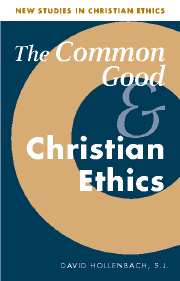1 - The eclipse of the public
Published online by Cambridge University Press: 05 June 2012
Summary
Over two millennia ago, Aristotle set the challenge this book will address. Aristotle's aim was to discern fitting goals for a good human life. At the beginning of the Nicomachean Ethics he argued that a human life can be judged good when it is shaped by a relatively consistent pursuit of ends that are themselves good. Thus much of Aristotle's moral reflection was devoted to determining the nature of the good that people should seek. On this basis he wanted to specify what lifestyles can be called genuinely good patterns of living. His entire understanding of morality was built upon this conviction that a good life is one devoted to the pursuit of good purposes or ends.
One of Aristotle's most significant conclusions was that a good life is oriented to goods shared with others – the common good of the larger society of which one is a part. The good life of a single person and the quality of the common life persons share with one another in society are linked. Thus the good of the individual and the common good are inseparable. In fact, the common good of the community should have primacy in setting direction for the lives of individuals, for it is a higher good than the particular goods of private persons. In Aristotle's words,
Even if the good is the same for the individual and the city, the good of the city clearly is the greater and more perfect thing to attain and to safeguard. The attainment of the good for one person alone is, to be sure, a source of satisfaction; yet to secure it for a nation and for cities is nobler and more divine.
- Type
- Chapter
- Information
- The Common Good and Christian Ethics , pp. 3 - 31Publisher: Cambridge University PressPrint publication year: 2002

